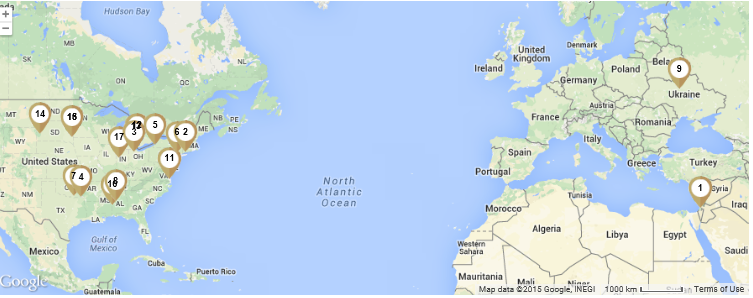News - University of Southern Mississippi
August 2019 GLOBE News Brief
August 2019 GLOBE News Brief
NASA/UNEP GLOBE Agreement Announcement
NASA and the United Nations Environmental Programme (UNEP) are pleased to announce an agreement to work together on the promotion and implementation of GLOBE and UNEP activities.
Through this partnership, GLOBE and UNEP will cooperate on environmental education and training, citizen science, and the collection and distribution of environmental data. They will also work together to increase awareness of, and promote the use of, GLOBE data by the international science community by leveraging the UNEP’s Global Resource Information Database (GRID) Centers and publications, with a goal of encouraging participation of environmental researchers in The GLOBE Program. GLOBE and UNEP will share education and training resources for distribution to their networks and promote closer collaboration of UNEP Regional Offices with GLOBE countries and Regional Coordination Offices in their regions.
UNEP, NASA, and The GLOBE Program are excited about the opportunities this partnership will bring to the environmental community. “NASA is pleased to partner with UNEP to enhance environmental education and training and to open up new prospects for the collection and use of environmental data,” Dr. Allison Leidner, NASA GLOBE Program Manager said. “The opportunity to collaborate with a worldwide environmental organization is especially exciting at the cusp of The GLOBE Program’s 25th Anniversary on Earth Day 2020.”
News
23rd GLOBE Annual Meeting A Collaborative Success
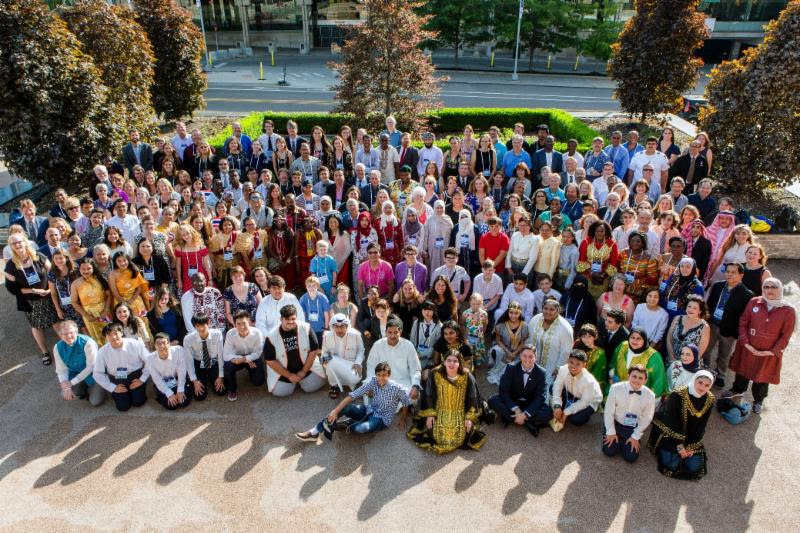
The 23rd GLOBE Annual Meeting, which was held in Detroit, Michigan, USA, from 14-18 July, was attended by almost 250 people from 35 countries. Participants took part in a variety of engaging and enlightening presentations, workshops, cultural presentations, and special interest and professional development sessions. They were also treated to focused addresses by GLOBE Implementation Office (GIO) Director Dr. Tony Murphy and keynote speakers from around the regions.
GIO would like to thank everyone for their participation and contributions – helping to make this scientific and educational event a collaborative success. “The 23rd GLOBE Annual Meeting was a wonderful success due to the hard work of GIO staff and the community involved in planning the meeting and those participating in it,” Dr. Tony Murphy said. “Participants made comments to me that the annual meetings were getting better and better each year, more organized and with better planning.”
The theme of the meeting, hosted by Dr. Kevin Czajkowski and David Bydlowski, was “Intersections of Diverse Environment,“ which sought to explore Detroit’s diverse cultural, geographical, and economical environments in multiple strands: Finding Nature in Urban Landscapes; Exploring Changing Environments; GLOBE and Technology; and GLOBE Gives Back.
Nearly 60 students participated in the two-day “student experience,” which was held at the Howell Nature Center from 16-18 July. (Howell Nature Center is an outdoor education and wildlife rehabilitation center located about an hour outside of Detroit.) Students engaged in hands-on activities centered around learning about the local environment; and also designed and worked on a project using GLOBE protocols to help them better understand their environment.
“It was awesome to see the students' energy and excitement about their GLOBE research on Monday evening, with topics from air pollution to incidence of mosquito populations. While the students left Detroit for a two-day field experience at Howell Nature Center, the adults learned lots of new information in sessions from their colleagues,” Dr. Murphy said.
“The growing collaboration in the program was visible by all six Regional Coordination Offices coming together to discuss and organize a new water campaign across all the regions – something that has never really occurred before, especially for an idea originating in one region, Africa,” Dr. Murphy said. “Given this energy, GLOBE heads into the 25th anniversary year stronger than ever.”
To check out the student presentations, click here.
To experience photos shared by meeting participants, click here.
You can also view the following Facebook videos:
- Day 1: Student Poster Presentations
- Day 2: Team Building at Howell Nature Center
- Day 3: Flying Kites with the AREN Project at Belle Isle
- Day 4: Project Presentations and Reactions
- Day 4 Bonus: Moments from the Final Banquet
Additional Facebook videos from the Annual Meeting (such as coverage of keynote speakers, sessions, and the "BE with GLOBE" volunteer opportunity) are available on our Facebook page, here.
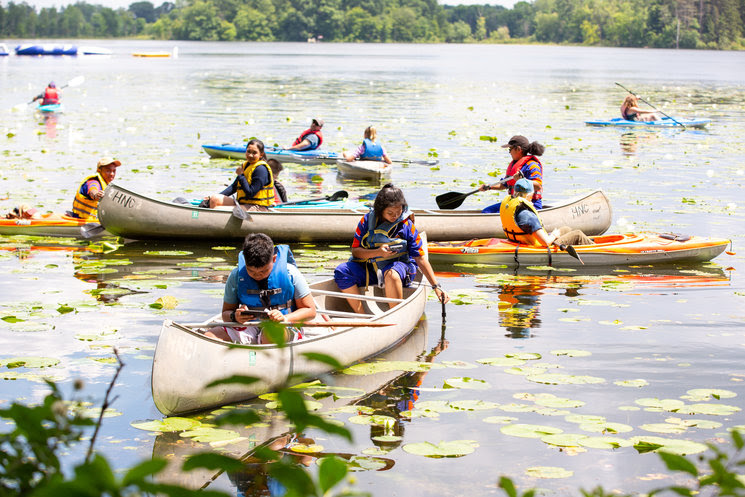
GLOBE Community: Join the New Community-led “GLOBE Water Bodies Intensive Observation Period” Taking Place 23-27 September 2019
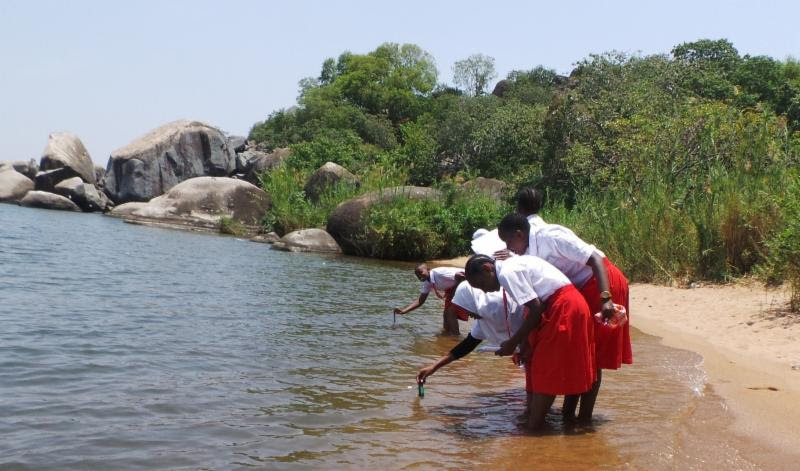
Through collaborative meetings at the GLOBE Annual Meeting, the GLOBE community is leading an exciting new event: “GLOBE Water Bodies Intensive Observation Period” (IOP). The IOP will begin on 23 September and run through 27 September. All GLOBE countries, in all GLOBE regions, are invited to join in this data collection and research endeavor.
Participants will identify a waterbody close to their schools or towns and, during the IOP, collect and enter data using GLOBE pH, temperature, freshwater macroinvertebrates protocols, and the GLOBE Observer Mosquito Habitat Mapper tool, and more (stay tuned!). The overall goals of the event are to:
- Connect to, and collaborate with, other GLOBE community members around data related to water bodies;
- Connect to community issues, and provide possible solutions to those issues, using GLOBE materials; and
- Connect to the United Nations’ Sustainable Development Goals (SDG), and provide an opportunity to carry out activities related to girls in science and education. (SDG 4 and 5), food security (SDG 2), and water (SDG 6).
The Global Sustainable Development Goals is a 17-point plan to end poverty, combat environmental changes and fight injustice and inequality. It was adopted by 193 world leaders at a United Nations Summit in 2015 and came into force on 01 January 2016. (To view the correlations between the SDGs and The GLOBE Program, click here.)
For more information on the IOP, check with your respective Regional Coordination Office or contact Mark Brettenny at: mark@globe-africa.org.
Join the August GLOBE Mission Mosquito Education and Citizen Science Webinars
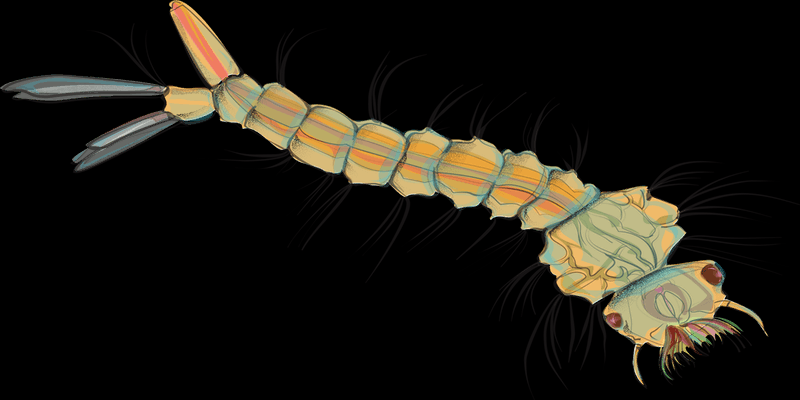
GLOBE educators and citizen scientists (of all ages) – you are invited to join the following GLOBE Mission Mosquito (GMM) August webinars:
GMM Education Webinar #10 “Around the World with Mission Mosquito” – Wednesday, 07 August (8:00 p.m. EDT/12:00 a.m. UTC): Join GMM team for a free webinar featuring data collectors from four different countries. Each presenter will share information about a country, as well as when and where there are active mosquitoes. They will also explain the different types of mosquito-transmitted diseases that are in their region and describe the prevention and protection measures used locally, as well as how they are using the GLOBE Observer Mosquito Habitat Mapper tool with their community.
To register for the webinar, click here.
GMM Citizen Science Webinar #8 “Use Zika Zine in Your Outreach” – Wednesday, 21 August, (2:00 p.m. EDT/6:00 p.m. UTC): Join the GMM team for a free webinar to discuss and share outreach ideas. Dr. Lisa Gardner (from the University Corporation for Atmospheric Research Center for Science Education), who will present her cartoon series, “Zika Zine,” and discuss effective science communication techniques. Library partners are especially encouraged to attend.
To register for the webinar, click here.
To learn more about the GLOBE Mission Mosquito campaign, and to view archived webinars, click here.
South American Eclipse 2019 – August 15 Webinar: “Now What Do I Do With the Data?”
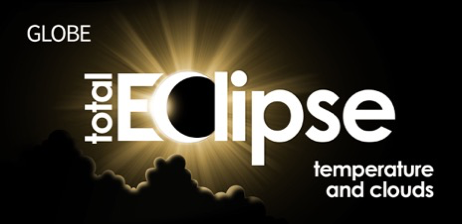
On 02 July 2019, a total solar eclipse passed across the southern part of South America. The eclipse began over the Pacific Ocean, and the lunar shadow entered South America near La Serena, Chile, and ended near Chascomús, Buenos Aires, Argentina. Outside this path, a partial solar eclipse was visible in the rest of Chile and Argentina, as well as in Ecuador, Peru, Bolivia, Paraguay, Uruguay; and in parts of Colombia, Brazil, Venezuela, and Panama.
On Thursday, 15 August (9:30 a.m. EDT/13:30 UTC), the webinar “Now What Do I Do with the Data?” will be presented. In the scientific process, after the collection of data comes the analysis and making conclusions. This webinar will provide a summary of how much data was collected during the eclipse, a professional scientist’s view of the data, and tips and ideas for student research projects (including the opportunity to submit projects to GLOBE’s International Virtual Science Symposium).
This is Webinar #4 in a series of webinars that are intended for GLOBE teachers and students in South America (especially Argentina and Chile; however, they are open to anyone who is interested) to learn about eclipses and to get some tips for analyzing the data they collect. The webinars will be held in Spanish.
To register for the webinar, click here.
To view the main page for webinars, click here.
GLOBE Congratulates Top June 2019 Trees Around the GLOBE Campaign Measurement Champions
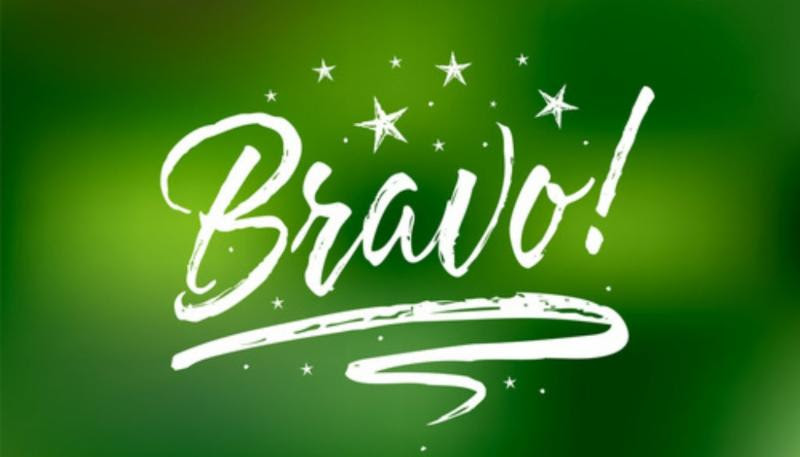
The GLOBE Program would like to congratulate the top most active Trees Around the Globe Student Research Campaign participants taking at least 10 measurements for tree height, greenings, and land cover measurements for the campaign in June!
Tree Height:
- W. Kankanjana (Thailand)
- D. Kaewsuphan (Thailand)
- C. Tuksinganon (Thailand)
- D. Sisai (Thailand)
- P. Choknut (Thailand)
- A. Veseljic (Croatia)
- Y. Lee (Taiwan Partnership)
- B. Bresnahan (United States)
Greenings (Green-Up/Green-Down):
- B. Safin (Croatia)
- M. Algarni (Saudi Arabia)
- E. Lindsey (United States)
Land Cover:
- Y. Lee (Taiwan Partnership)
- A. Majkut (Poland)
- S. Taylor (United States)
- J. Bouwman (United States)
- R. Smith (United States)

Fourth Annual U.S. Regional Student Research Symposia a Success
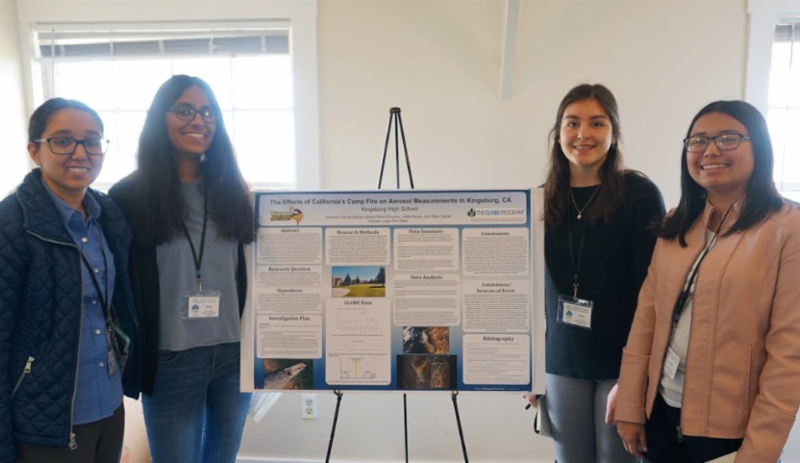
In 2019, with support from a grant from the NASA and Youth Learning As Citizen Environmental Scientists (YLACES), students from across the United States had the opportunity to come together at one of six face-to-face regional Student Research Symposia (SRS) to share the results of field investigations using GLOBE protocols.
At the 2019 regional SRS, 261 students presented a total of 114 GLOBE research projects to their peers and local scientists. These students, along with 66 GLOBE teachers, represented 26 different U.S. states/territories. States new to the SRS this year included Maine, Rhode Island, Virginia, and Washington. This year, greater emphasis and support was given for uploading data and projects to the GLOBE website. Thirty-nine schools uploaded their data to the GLOBE website (up from 13 last year!), and 33 SRS projects have been uploaded to Student Research Reports.
During the SRS, students shared their research with one another (peer review) and to scientists and other professionals for evaluation. Through this experience, students received feedback on their research and were able to explore STEM careers. Participants also heard keynotes from local scientists and community members, experienced local tours and hands-on science activities.
Thirty-two GLOBE partners (representing 20 partnerships), four GIO/SSAI representatives, and scientists from many organizations (including NASA, NOAA, YLACES, and the U.S. Forest Service), assisted in making the events a success.
To learn more about the SRS, click here.
To view the 2019 Student Research Reports, click here.
GLOBE Zika Education and Prevention Project June Update

GLOBE would like to thank the Africa Region for their work on the GLOBE Zika Education and Prevention Project. Over the last year, the ten GLOBE countries from the Africa Region participating in the project (Benin, Burkina Faso, Cameroon, Ghana, Kenya, Madagascar, Nigeria, Senegal, Togo, and Uganda) have organized 45 country and local mosquito training workshops; trained over 800 individuals; and added over 30,600 mosquito data points to the GLOBE Observer Mosquito Habitat Mapper (GO MHM) tool!
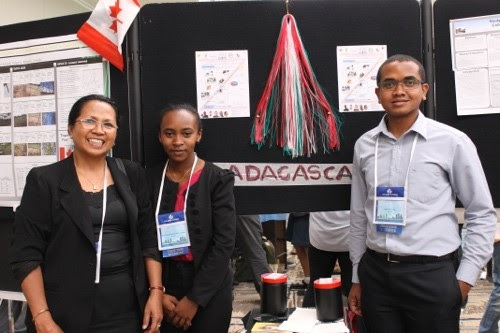
GLOBE Annual Meeting in Detroit, Michigan, USA.
In addition, Rock Aïkpon (Centre de Recherche Entomologique de Cotonou), Mark Brettenny (Africa Regional Coordination Office Director), and Ylliass Lawani (Assistant Country Coordinator for Benin and Alumni Coordinator for Africa), co-authored a second journal article, published in the International Journal of Entomology Research, assessing Aedes aegypti biting trends in Benin, titled “Larval breeding characteristics and distribution of Aedes mosquito species in the economic capital of Benin: A public health concern.”
Students in GLOBE Zika Education and Prevention Project countries are also active in mosquito based research and data collection, submitting six research reports to the GLOBE IVSS in 2019. Student groups from Kenya and Madagascar, selected based on their IVSS research, recently presented their research at the GLOBE Annual Meeting in Detroit, Michigan, USA (with their travel supported by the U.S. Department of State). Students from Kenya presented “Research on mosquitoes and diseases they transmit: A Study of Mosquitoes Around Our School,” and students from Madagascar presented “Surveillance of Aedes albopictus mosquitoes vectors of ZIKA in urban area.”
To read the article “Larval breeding characteristics and distribution of Aedes mosquito species in the economic capital of Benin: A public health concern,” click here.
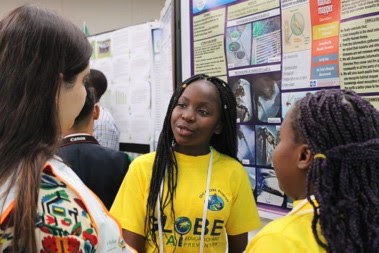
the 2019 GLOBE Annual Meeting in Detroit,
Michigan, USA.
To learn more about student research related to the GLOBE Zika Education and Prevention Project, click here.
Upcoming: Mosquito Week and Mosquito Day! Share Your Stories with the GLOBE Community!
Mosquito Week runs 28 July through 03 August, and World Mosquito Day is 20 August. Summer in the northern hemisphere for many GLOBE regions means an increase in mosquitoes, and the risk for mosquito-borne disease. Be a part of global efforts to raise awareness about mosquitoes by showcasing your mosquito and vector-borne disease education and prevention work. Share your photos, community engagement actions, and mosquito trainings on social media during Mosquito Week and on World Mosquito Day using the GLOBE mosquito hashtags: #GLOBEZika and #MissionMosquito
To learn more about the GLOBE Zika Education and Prevention Project, click here.
Carbon Cycle Modeling eTraining Now Live
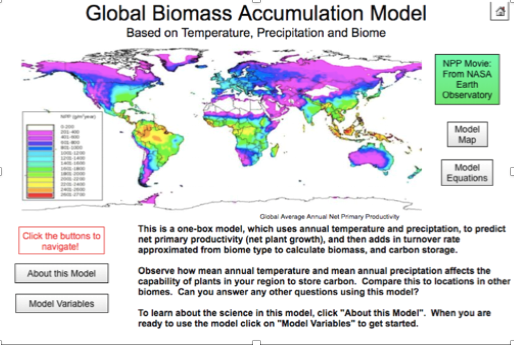
The GLOBE Program is pleased to announce that the Carbon Cycle Modeling eTraining is now live. This module covers systems and models, their associated vocabulary, diagramming systems, and why models are useful tools for understanding systems. It also highlights three GLOBE Carbon Cycle Online Models that introduce systems thinking and the global carbon cycle.
The GLOBE Carbon Cycle Modeling Activities use a systems-thinking approach to gain a foundation in the carbon cycle and its relation to climate and energy. The activities use computer models (at varying levels of complexity) to predict the change in biomass and carbon storage over time, and give students the opportunity to use an important scientific tool.
These activities are an excellent way to address to both the "Developing and Using Models" Science and Engineering Practice and the "Systems and System Models" Crosscutting Concept of the Next Generation Science Standards (NGSS).
Looking for other places to connect carbon to NGSS? The full set of carbon cycle materials incorporate a diverse set of activities geared toward upper-middle and high school students, including Introductory learning activities, plant-a-plant experiments, protocols and field learning activities, computer modeling, and comprehensive teacher support.
To view the GLOBE Carbon-NGSS correlation matrix, click here.
To check out the new Carbon Cycle Modeling eTraining, click here.
To see the carbon cycle suite of activities and protocols (including modeling), click here.
Tech Update

In June and July, GLOBE completed development on, and launched, the following:
- API Out Application – The GLOBE API (Application Programming Interface) has been built to support developers who would like to retrieve GLOBE data from a programmatic interface. The API provides fast access to GLOBE data through a variety of API calls, including the ability to find data by protocol, date, latitude/longitude, country, and more. Each API call is associated with a unique URL and combination of variables. To access the API, click here.
- Latin America Eclipse – Users were able to use the GLOBE Observer app's special eclipse tool to take air temperature and cloud observations during the total eclipse that took place on 02 July in South America. Similar to when the last total eclipse occurred in the United States in 2017, GLOBE worked to add this feature to the app and customized it for the South American audience.
- New Instructions – New instructions on how to add layers from the GLOBE visualization system to the ArcGIS application are now available on the GLOBE website. To access this, click here.
Have You Seen Dr. Tony Murphy’s Third Quarter Video Address to the Community? Watch It Now!
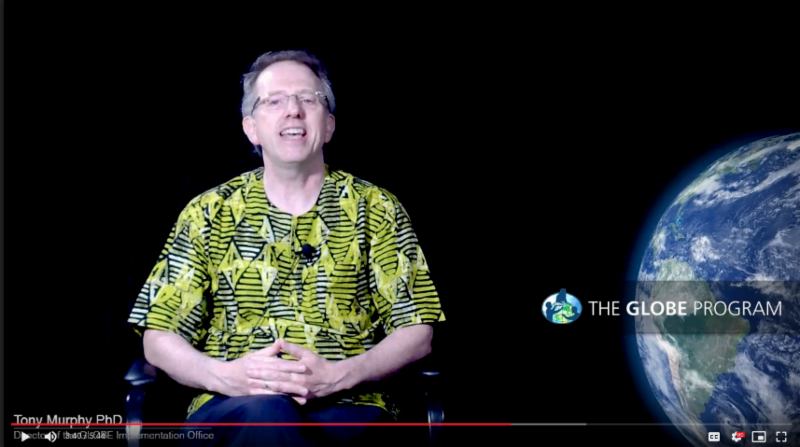
GLOBE Community: If you haven’t had a chance to watch GIO Director Dr. Tony Murphy’s third quarter video address, then watch it today!
To watch the video, click here.
For written transcripts, click here.
To translate the English subtitles (available by clicking on the “CC” button
on the video screen), click here.
Keeping Up With GLOBE Star Stories? Read About Our Latest Stars!

Have you been keeping up with the latest GLOBE Star Stories? GLOBE Stars are stories of projects, people, and extraordinary activities being conducted around the world in connection to GLOBE. GLOBE Stars are the bright lights that spark our imagination and inspire us with news of GLOBE at work in the world. Here are a few recent Star Stories:
- Teacher Training Highlights Reactivation of The GLOBE Program in Kyrgyz Republic – In February 2019, with the aim of reactivating The GLOBE Program in the Kyrgyz Republic, the Europe and Eurasia Regional Coordination Office and the GLOBE Kyrgyz Country Coordinator, Murataly Duishonakunov, organized a pivotal teacher training at the Kyrgyz National University in Bishkek.
- GLOBE Czech Republic Honors Three GLOBE Schools with “Czech GLOBE Star 2019” Award –In February 2019, GLOBE Czech Republic awarded three GLOBE schools with the title "Czech GLOBE Star 2019" for their significant achievements during the year. This yearly acknowledgement of students, and their superior GLOBE-related efforts, began in 2016. Awarded schools receive diplomas, medals, and gifts from members of the Scientific Board of TEREZA Educational Center and the Regional Coordination Office of GLOBE’s Europe and Eurasia Region.
- Largest Teacher Training Event in Bicol Region, Philippines, Focuses on Zika Education and Prevention Project Training and GLOBE Protocols – In October 2018, 435 public school teachers from the Camarines Sur Schools Division, Department of Education (DepEd) participated in the largest training event ever held in the Bicol region of the Philippines.
Are you a GLOBE Star? Share Your Story!
Are you a GLOBE Star? If so, GLOBE wants to hear all about it! Send your story of people, projects, or activities to share on the GLOBE website. To learn more about GLOBE Stars, and to use the Star template for submitting your GLOBE Star Story, click here.
Read GLOBE’s Latest Community Blog, “See A Dust Storm? Submit Your Photos with the GLOBE Observer App”
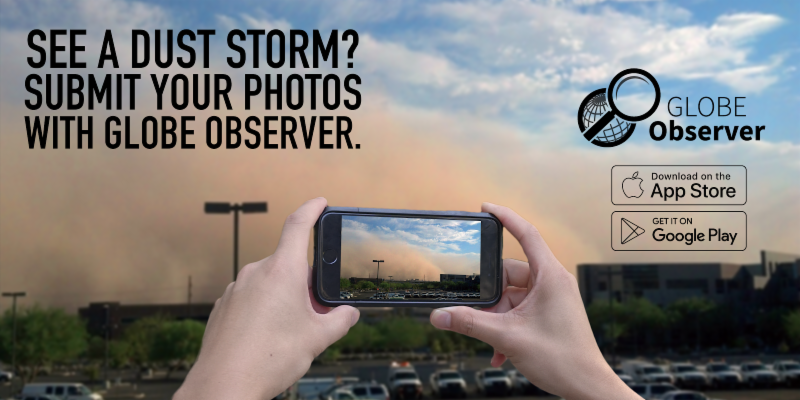
Do you live in an area that has dust storms? You can photograph the dust event and submit your photos using the GLOBE Observer App.
As Marile Colon Robles (Project Scientist for GLOBE Clouds at NASA Langley Research Center in Hampton, Virginia, USA) noted in her recent Community Blog, “See a Dust Storm? Submit Your Photos with the GLOBE Observer App“ anyone can report dust storms!
To “meet” the scientists, learn why submitting your dust observations is important, and exactly how to report your observations using the GLOBE Observer App, click here.
Read GLOBE’s Latest Guest Scientist Blog: “GO Oklahoma! Citizen Science Campaign”
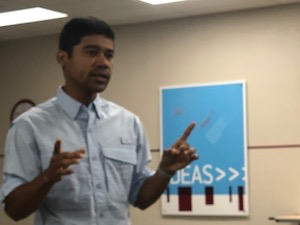
Science Museum Oklahoma.
A recent GLOBE Guest Scientist Blog, submitted by Dr. Caio França, Southern Nazarene University (Bethany, Oklahoma, USA), entitled “GO Oklahoma! Citizen Science Campaign,” discusses research focused on surveillance of mosquito-borne arboviruses. “I’m interested in discovering evolutionary elements that could provide key information about epidemiology, geographic range, and spread of West Nile Virus strains,” Dr. França said.
“Oklahoma is an ecologically diverse state in the Southern Plains region of the United States. It is part of the central flyway for migratory birds, which makes it a sentinel location for West Nile Virus (WNV) surveillance,“ Dr. França said in the blog.
“Why birds? Birds play a role in the WNV transmission cycle. Mosquitoes become infected with WNV when they bite an infected bird. Birds can develop high levels of the virus in their bloodstream. Because WNV is usually non-lethal in birds, birds serve as reservoir hosts. In disease ecology, there are organisms that serve as natural reservoirs for the pathogen. Reservoir hosts refer to organisms where the infectious pathogen naturally lives and reproduces. Mosquitoes acquire WNV through a blood meal from a bird and can then transmit the pathogen to humans.”
Want to read more about this research? Then click here. (GO Oklahoma! is a collaboration between Dr. Mike Wimberly, University of Oklahoma; Dr. Caio França, Southern Nazarene University; Dr. Russanne Low and Cassie Soeffing, The Institute for Global Environmental Strategies; and the NASA GLOBE Observer Mission Mosquito campaign. For more information on GO Oklahoma or to volunteer for the campaign, contact Dr. França at cfranca@mail.snu.edu.)
To read other recent Scientist Blogs, click here.
Opportunities for U.S. Teachers
(U.S. opportunities are often highlighted in the News Brief simply because we are more aware of them through our local media; however, if there are opportunities for GLOBE students and/or teachers in your region you would like us to highlight in the coming months, please send the information to communications@globe.gov. Thank you!)
NASA STEM Educator Webinars
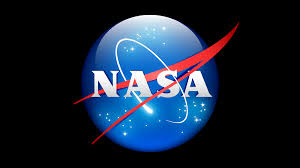
News origin: GLOBE Implementation Office






